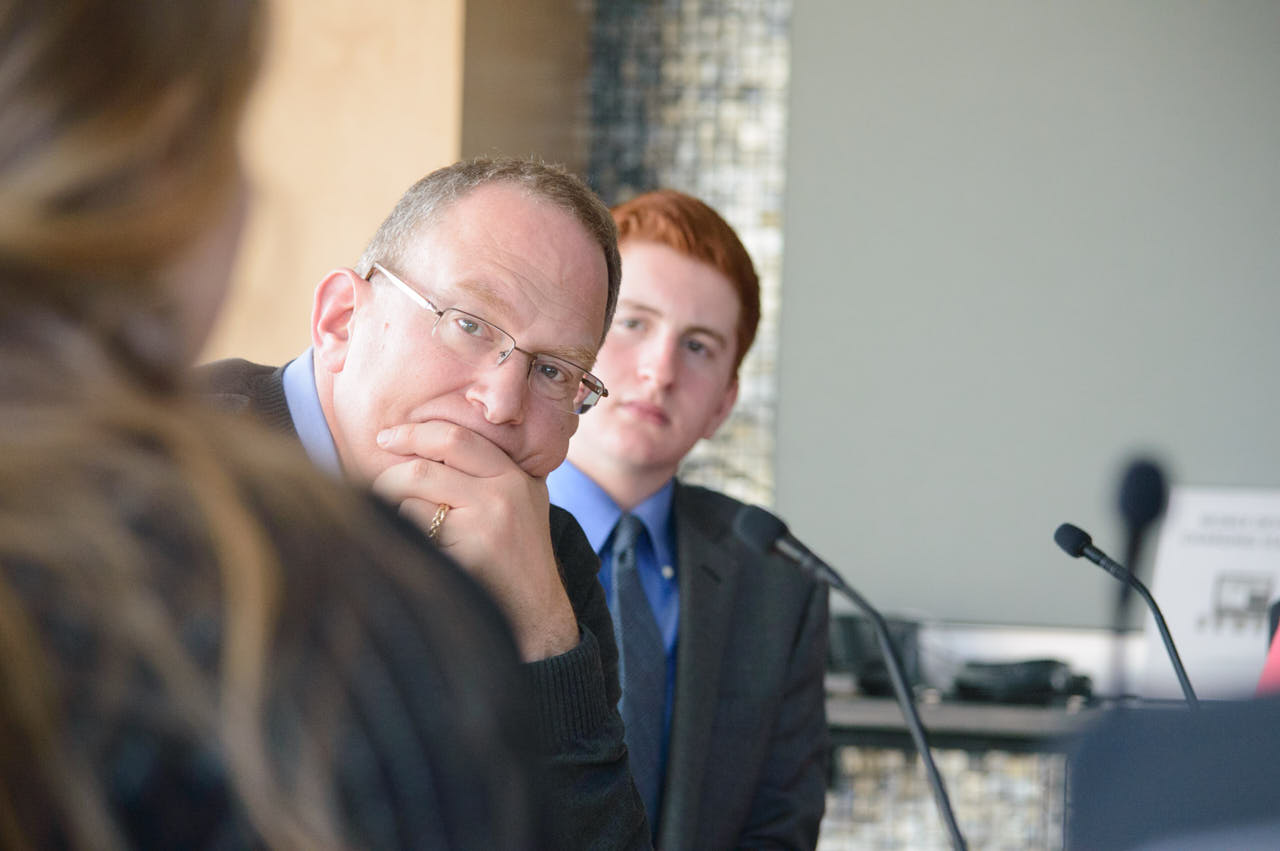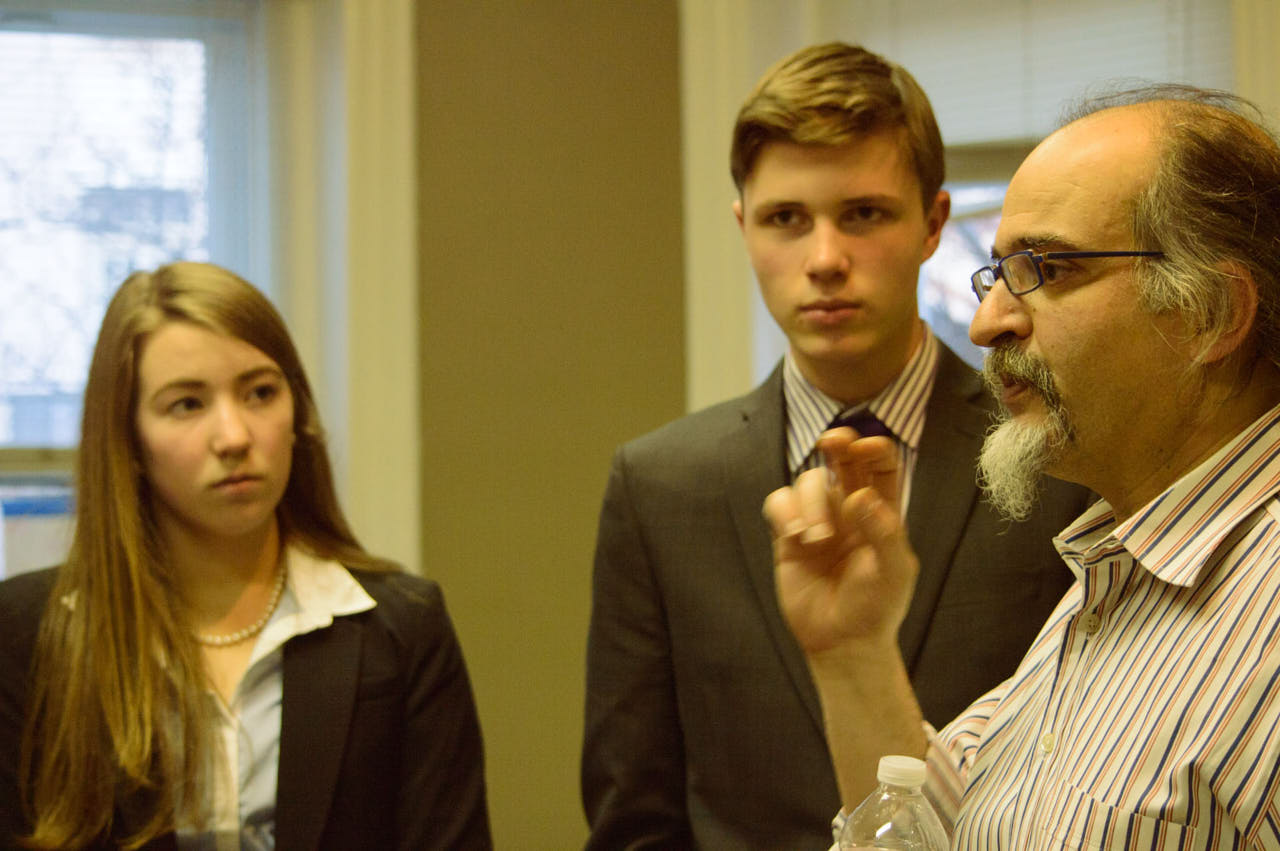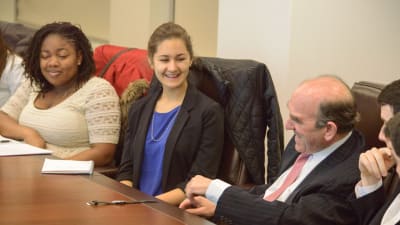SPRING 2014 FACES ISRAELI-PALESTINIAN CONFLICT
Last week our Spring 2014 students faced what is arguably the most intractable international dilemma of our age: the Israeli-Palestinan Conflict. The disagreement is so fraught with anger and misunderstanding that many question every word, every historical event, every intention. And yet the problem remains, and will remain until we have leaders–perhaps including a few SEGL graduates–who conquer it.
Our students began with SEGL’s account of Israeli-Palestinian history: the competing promises of T.E. Lawrence and the Balfour Declaration, the competing boundaries in 1948, 1967, and today, the competing visions for the future within Israel and within the Palestinian leadership. This historical account makes every attempt to be unbiased, but we also told the students that many observers on both sides would want to add, subtract, or edit each PowerPoint slide they viewed. Skeptical eyes and ears are a must in this area. (We also underlined another SEGL truism: if, after a case study, you want to hear a view different from the ones presented, say something! If there is enough interest, we can often arrange for a supplementary speaker later in the semester; if there is not enough interest, any interested student can set up her or his own meetings during a free period.)


On Wednesday we traveled to the American Israel Public Affairs Committee (AIPAC), the leading pro-Israel lobbying organization in the country, to meet with Jonathan Kessler, AIPAC’s Leadership Development Director (and a member of AIPAC’s senior staff). On Friday we met with Elliot Abrams, President George W. Bush’s Deputy National Security Advisor and National Security advisor on Middle East Affairs (Abrams also served President Reagan as Assistant Secretary of State on three occasions); with Suhayb Al-Jawhari (a DC-based SEGL graduate of Palestinian descent); and with Ghaith al-Omari, a former top advisor to Palestinian leader Mahmoud Abbas and a negotiator in the 2000 Camp David peace talks. Our conversations took on a special urgency as Secretary of State John Kerry is working to bring the two sides together for the first major peace talks in many years (for example, see this recent article)

As you might expect, the viewpoints were quite varied, and many students reported feeling buffeted by each speaker’s strong arguments. In a discussion that followed, several noted how valuable it was to hear the side they had understood less. There were also a few only-at-SEGL moments: a student asked Abrams about his role in the Iran-Contra scandal (you can read a bit about it here), and al-Omari gave some off-the-record strategy observations given a number of his recent high-level meetings.
Learning how to ask tough-but-respectful questions and how to discuss the most deeply-felt of issues is an essential part of leadership, and it is an essential part of an SEGL education. We’re proud of how our students handled this week (and they continue to discuss it over dinner and over weekend fun) and looking forward to next week’s challenge: the 1994 Rwandan genocide.
















